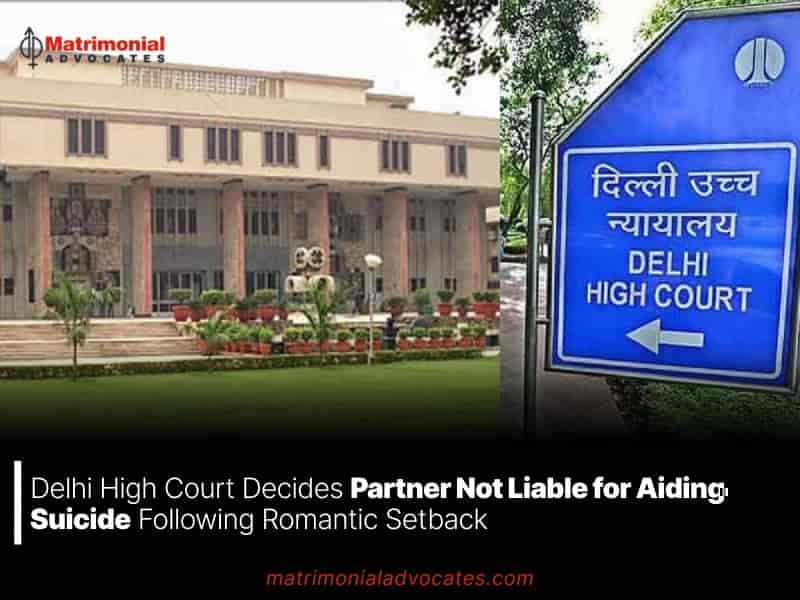
The Court further said that if a student fails an exam or a client loses a case and commits suicide for such reasons, the examiner or the lawyer cannot be held liable either for suicide abetment.
The Delhi High Court recently emphasized that in cases where a romantic partner takes their own life due to relationship issues, the partner cannot be held accountable for aiding the suicide. Similarly, Justice Amit Mahajan highlighted that if a student commits suicide due to academic failure or a client does so after a court ruling against their case, neither the teacher nor the lawyer can be considered responsible.
“If a lover commits suicide due to love failure, if a student commits suicide because of his poor performance in the examination, a client commits suicide because his case is dismissed, the lady, examiner, lawyer respectively cannot be held to have abetted the commission of suicide. For the wrong decision taken by a man of weak or frail mentality, another person cannot be blamed as having abetted his committing suicide,” the Court stressed.
The Court made these observations while granting anticipatory bail to a man and a woman who were accused of abetting suicide in connection with the death of a young man. The woman, who was known to have a romantic relationship with the deceased, tragically took his own life upon witnessing the two accused individuals together. Allegations arose that the accused pair influenced the deceased by suggesting they were engaging in intimate activities and planning to marry soon. Additionally, they reportedly disparaged the deceased’s masculinity, prompting him to consider ending his life or risk having his private images, taken through his broken car window, circulated online with derogatory comments. Justice Mahajan, after examining the evidence, observed from the submitted WhatsApp conversations that the deceased frequently resorted to threatening suicide whenever the woman declined to communicate with him, indicating a sensitive disposition.
“It is correct that the deceased had written the name of the applicants in suicide note, but, in the opinion of this Court, there is nothing mentioned, as to the nature of threats in the alleged suicide note written by deceased of such an alarming proportion so as to drive a ‘normal person’ to contemplate suicide,” the Court noted.
The court further stated that the alleged mockery by the defendants towards the deceased regarding his failed romantic relationship with the woman did not appear to meet the criteria for provocation required for abetment of suicide under Section 306 of the Indian Penal Code (IPC). As a result, the court proceeded to grant anticipatory bail to both defendants.





